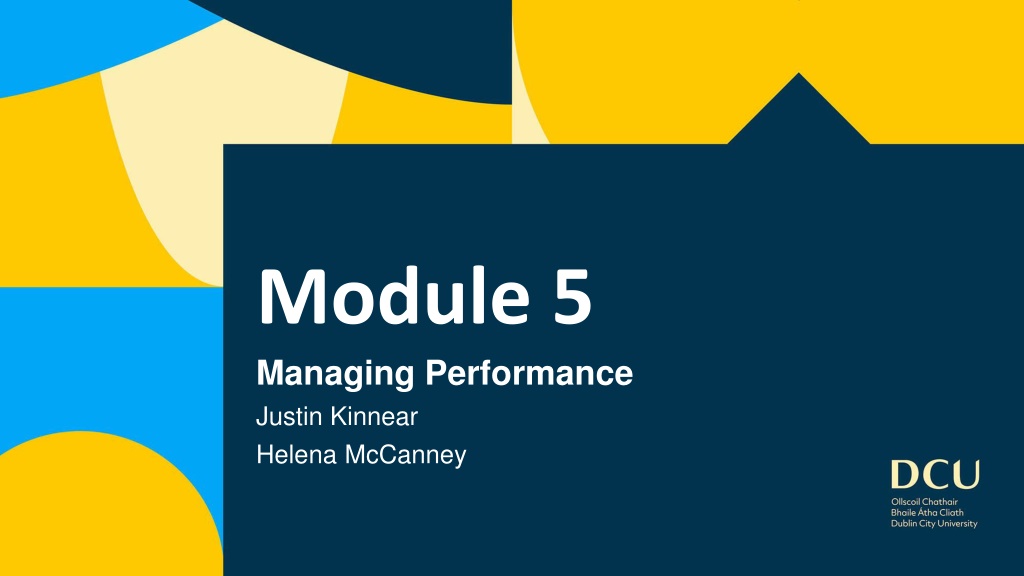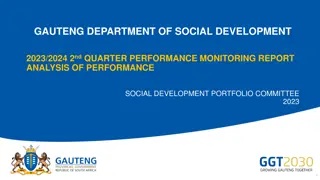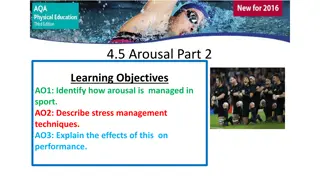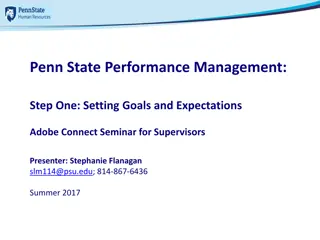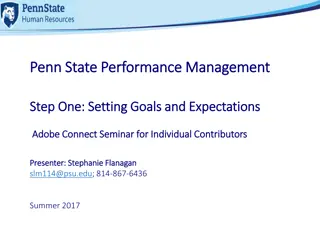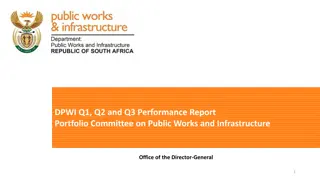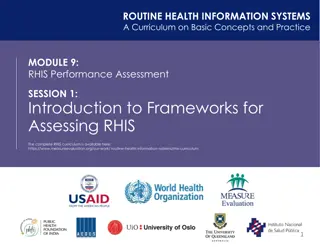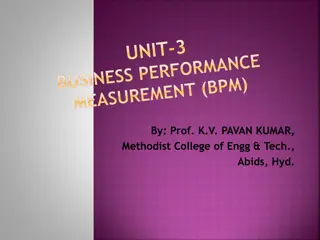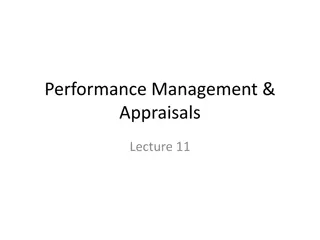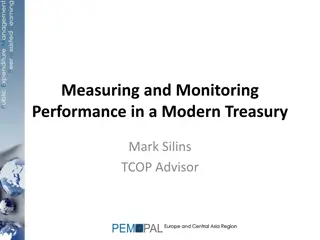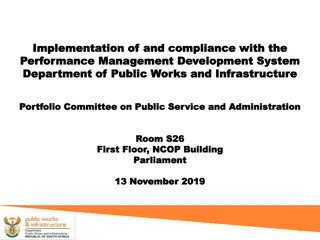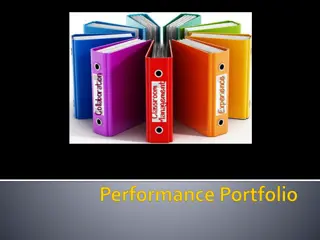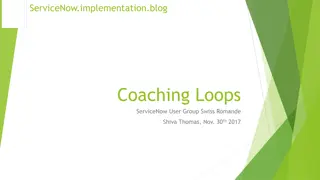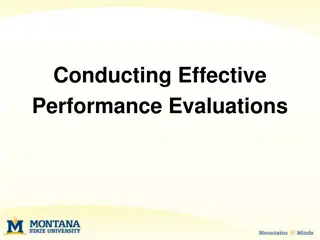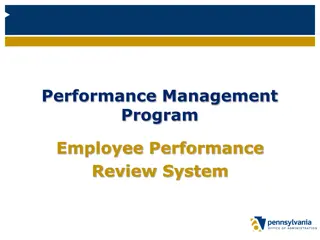Enhancing Performance Through Effective Management
In this module on managing performance, participants will learn how to support others in their professional and personal development, give and receive positive feedback, and manage employee performance effectively. The session emphasizes clarity in communication, setting expectations, and the importance of constructive feedback. The content stresses the impact of feedback on performance and highlights strategies for improving outcomes. By understanding the space between expectations and reality, participants can foster better relationships and achieve higher performance levels.
Download Presentation

Please find below an Image/Link to download the presentation.
The content on the website is provided AS IS for your information and personal use only. It may not be sold, licensed, or shared on other websites without obtaining consent from the author. Download presentation by click this link. If you encounter any issues during the download, it is possible that the publisher has removed the file from their server.
E N D
Presentation Transcript
Module 5 Managing Performance Justin Kinnear Helena McCanney
Programme team Programme team Justin Kinnear Leadership Consultant, HPC Helena McCanney Senior Learning and Organisational Development Officer
Agenda Expectations Objectives Feedback Recognition Next steps
Learning outcomes By the end of today s session you will Recognise how to support others in their professional and personal development Give and receive constructive and positive feedback in a way that maintains relationships and increases performance Manage performance in a way that enables employees to do their best work
Sharing expectations What I expect the other person to deliver 1 2 What the other person expects from me What the organisation expects from us both 3
The space between expectations and reality is the birthplace of resentment -Britt Frank
59% of the time feedback has no effect or makes things worse Source: Kluger, A.N. and DeNisi, A., 1996. The effects of feedback interventions on performance: A historical review, a meta-analysis, and a preliminary feedback intervention theory. Psychological bulletin, 119(2), p.254.
A Action Impact I D Do next time?
Feedback is high-quality, sensory-based observation without interpretation - John Bradshaw
About two thirds of people get feedback monthly (or a little more frequently) Over 65% of Gen Z respondents reported needing frequent feedback. Ideally, they preferred to get it at least once a week
Many managers avoid feedback conversations out of fear that they will lose control of the conversation Some worry that the other person will become emotional, while others worry that the other person will become withdrawn
of respondents said they want constructive feedback - it helps them to perform better 94% John Zenger and Joe Folkman (2015) Feedback: The Powerful Paradox
Effective feedback requires preparation. The key message should be clear, and the conversation should follow a logical structure Feedback lands when the recipient feels it is a fair and balanced discussion. They are afforded time to talk and think, and they know what to do
A feedback discussion should flow in both directions Asking open questions, listening attentively, and encouraging the other person to suggest actions will all make for an engaging and productive discussion.
A feedback discussion that aims to change behaviour should end with an agreed action Your follow-up will determine whether the person follows through on their commitment
When you include multiple messages you run the risk of messageoverload Overly positive feedback delivered along with corrective feedback can make you appear disingenuous
Be realistic about how long the results of your feedback may take to appear If you apply excessive pressure you may trigger anxiety, and this will suppress any appetite to change behaviour
Questions about Recognition 1. What would you like others to recognise and show appreciation for in your work? 2. How do you prefer to be recognised? 3. What kind of recognition would displease or annoy you?
Almosthalf of employees say they'd leave a company that didn't praise or didn t thank them for their work Employees that receive regular recognition are up to eighttimes more engaged
64 percent of employees say employee recognition and appreciation is more important while working from home Employees working from home tend to receive far more corrective feedback than praise
Things to consider when it comes to recognition? 1. Choose the right approach 8. Be fair and consistent 2. Be sincere 9. Praise people publicly when appropriate 3. Be specific 10. Praise teams as well as individuals 4. Pass it on 5. Seek opportunities to praise 11. Make time for praise 6. Offer praise regularly 12. Make praise stand alone 7. Offer praise in person where possible 13. Make a record of praise 14. Create a culture of praise
Your next steps: - Have an expectations exchange where needed - Give someone feedback or recognition - Attend peer group meeting - Complete follow-on - Move on to prework for Module 6
